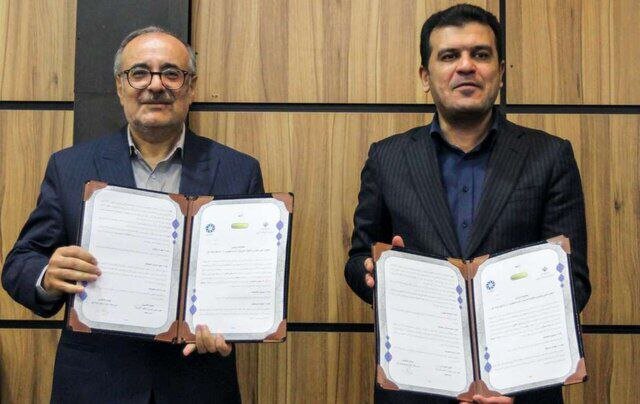Some $100 million allocated to develop AI

TEHRAN –The Vice Presidency for Science, Technology and Knowledge-Based Economy and the National Development Fund (NDF) have signed a memorandum of understanding (MOU) to create a 100-million-dollar fund for the development of the artificial intelligence (AI) sector in the country.
Signed by Hossein Afshin, an official with the vice-presidency of science and technology, and Mehdi Qazanfari, the head of the NDF, the MOU aims to establish a framework for the development and implementation of AI in line with the seventh national development plan (2023-2027) and the Leader of the Islamic Revolution Ayatollah Seyyed Ali Khamenei’s emphasis on investing in emerging fields, ISNA reported.
According to the MOU, the projects introduced by the vice-presidency for science and technology will be funded through loans, partnerships, and other ways of financing. To further boost cooperation between universities and the private sector, the NDF will grant specific loans to those companies that financially support AI-based projects in universities and scientific centers.
In return, the vice-presidency for science and technology will use financing tools for emerging technologies.
Iran’s ranking improves in Government AI Readiness 2024
According to the latest report by Oxford Insights index, which measures government readiness for implementing artificial intelligence (AI) in public services, Iran ranks 91 among 188 countries, moving up three positions compared to 94 in 2023.
AI has a key role to play –not just in governing the technology, but in helping governments perform better.
The Government AI Readiness Index has become a trusted resource for policymakers, adopted as an official benchmark by national governments.
In this year’s edition, the AI readiness of 188 countries at a time of growing complexity, where governments face evolving citizen needs and challenges like economic uncertainty, climate risks, and rising inequalities.
The 2024 index examines 40 indicators across three pillars: Government, Technology Sector, and Data & Infrastructure. It highlights progress, identifies gaps, and provides actionable insights for policymakers working to integrate AI into public service delivery.
At its core, the index asks ‘how ready are governments to implement AI in the delivery of public services?’ By answering this question, it aims to offer a practical tool that supports evidence-based decision-making and helps policymakers unlock AI’s potential to serve citizens better worldwide.
According to the index, the country’s best ranking is in the Data and Infrastructure pillar, 66.29 which has improved compared to 55.88 last year. It includes infrastructure (70), data availability (43), and data representativeness (121) indicators.
The country’s score in the Technology pillar is 38.82, it was 38.77 in 2023. It includes human capital (54), innovation capacity (62), and maturity (82) indicators.
Iran’s lowest score is in the Government pillar, 26.54, which has decreased compared to 31.56 in 2023. It includes vision (84), governance and ethics (145), digital capacity (92), and adaptability (177).
According to this year’s report, Iran’s ranking in the region has improved by one position, rising from 17 in 2023 to 16 in 2024.
MT/MG
Leave a Comment